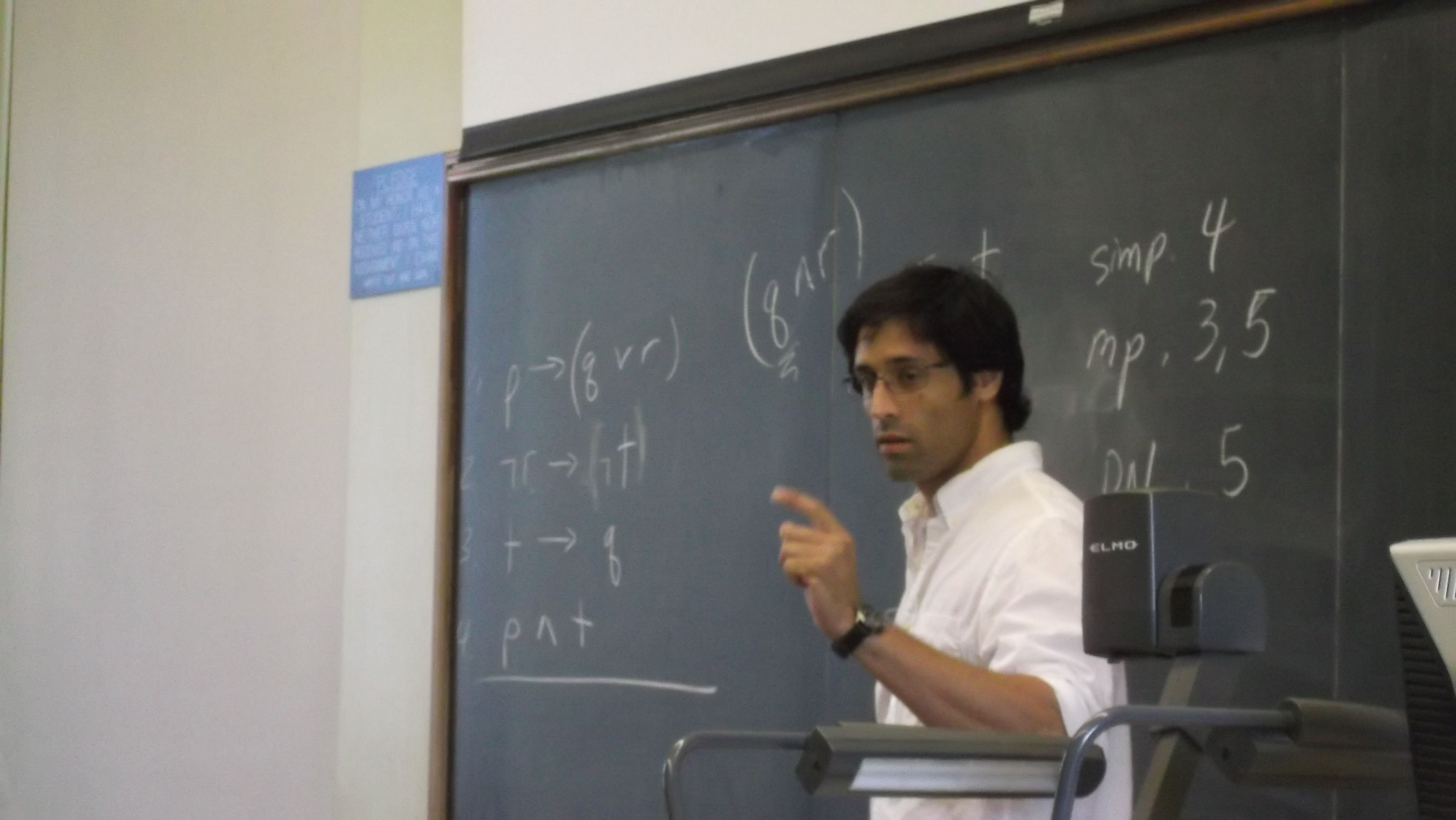Logic is something that can be applied to everyday life, a system of drawing conclusions from different sources of information.
This was the lesson Charles Rathkopf taught in his University of Virginia summer session philosophy course, "How to Argue Well," which wrapped up June 1. In the context of the course, "argument" is a structured form designed to reach a conclusion.
"In logic, 'argument' is the sort of abstract object that has premises and a conclusion," Rathkopf said. "What matters is that it has a certain structure and each premise has a certain meaning. What the students are learning to do is check whether the premises link together in a certain way."
The students learn to check for logical connection, then manipulate the premises in such a way to either extract a conclusion or demonstrate that it is impossible, given the information of the premises, to guarantee that the conclusion follows.
"And if you can do that, you are able to do two things," Rathkopf said. "One, you're able to reason well and generate new information on your own. Two, you're able to check when someone else attempts to make an inference, that they're doing it well."
Brendan King, 20, a rising third-year biology major in the College of Arts & Sciences, found the critical thinking aspect of the class "a breath of fresh air."
"I think this will help me in a lot of different ways," he said. "I've learned to take things with a grain of salt."
Because of this class, King said he realized that in the past he has made many invalid arguments.
Rathkopf, a doctoral student in philosophy, said that logic and inference are ways people draw conclusions.
"Logic is a central and ancient concern of philosophy," Rathkopf said. "Unlike other areas that you can keep on exploring, logic has a correct answer. It is like teaching math. I can see when the students get it; it is discrete, but very rewarding."
He started the class with basic arguments, working with word problems such as "when it rains the streets get wet. It is raining, therefore the streets are wet." But the class also dealt with logical progressions using symbols, such as structured "If P, then Q: P. Therefore Q," showing the logical progression of an argument.
Victoria Gabriele, 18, a rising second-year aerospace engineering major in the School of Engineering and Applied Science, said she enjoyed the class because logic is similar to math, which she likes. She also thinks it will help her as an engineer.
"I like being able to recognize the different structures of an argument and know how to pick them apart," she said. "It is important to be able to communicate in a lot of different ways."
"Logic is a tool that is helpful to critical thinking," Rathkopf said. "And while logic is abstract, you have to be sensitive to the subtleties of the language."
Rathkopf taught the students that logic allows them to take information from many different sources, rearrange it and draw inferences from it.
"We can extract new information from a given body of information that wasn't originally present, and that process of inference can be done either well or poorly," Rathkopf said. "Logic is about how to do it well, how to avoid making mistakes and how to extend the abilities you've already."
Media Contact
Article Information
June 13, 2012
/content/uva-summer-school-course-applies-logic-argument

